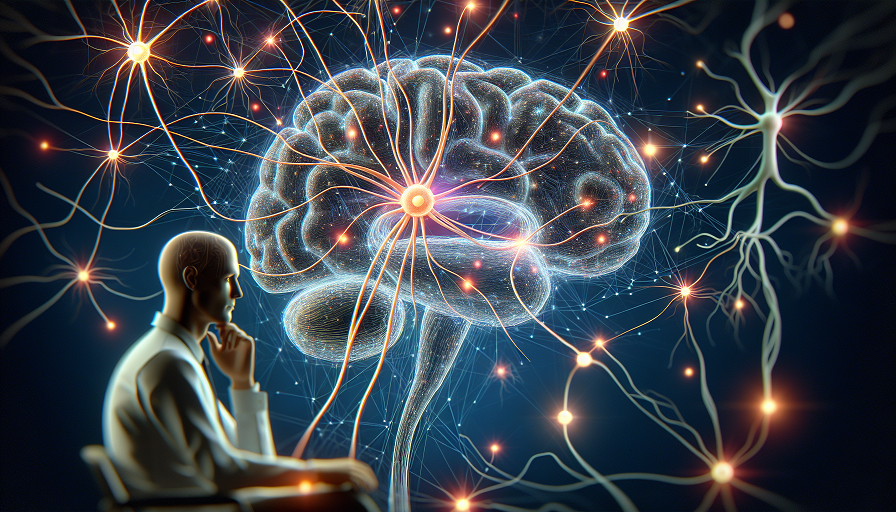
Music is more than just a source of entertainment — it’s a powerful tool that can reshape your brain. Whether you’re swaying to a favorite tune or diving into a complex symphony, listening to music activates multiple brain regions, fostering neuroplasticity, the brain’s ability to adapt and change. From enhancing memory and learning to boosting emotional resilience, music has profound effects on the mind.
Contents
The Science of Neuroplasticity
Neuroplasticity is the brain’s ability to reorganize itself by forming new neural connections. This remarkable adaptability enables learning, memory formation, and recovery from injuries. Neuroplasticity occurs in response to experiences, environments, and even stimuli like music, which engages multiple areas of the brain simultaneously.
Listening to music activates regions involved in emotion, memory, motor coordination, and sensory processing, creating a unique opportunity for neural growth and reorganization. By stimulating these areas, music listening can strengthen existing pathways and encourage the formation of new ones.
How Music Listening Rewires the Brain
Listening to music is not a passive activity for your brain. It involves complex processes that engage cognitive, emotional, and motor functions. Here’s how music listening rewires the brain:
Enhancing Memory and Learning
Music can significantly improve memory and learning by activating the hippocampus, a region responsible for storing and retrieving information. Studies have shown that pairing music with learning tasks helps embed information more effectively, creating stronger neural connections.
For example, students who listen to classical music while studying often report improved concentration and retention. This phenomenon, known as the “Mozart Effect,” suggests that music can temporarily enhance spatial-temporal reasoning and memory.
Improving Emotional Regulation
Music deeply engages the brain’s limbic system, which governs emotions. Listening to uplifting or soothing music can release neurotransmitters like dopamine and serotonin, improving mood and emotional resilience. Over time, this repeated stimulation rewires the brain, enhancing its capacity to regulate emotions and cope with stress.
Music therapy, for instance, is widely used to help individuals manage anxiety, depression, and trauma by promoting positive neural pathways associated with emotional processing.
Strengthening Neural Networks
Music listening involves multiple brain regions, including the auditory cortex, motor cortex, and prefrontal cortex. This multisensory engagement strengthens neural networks and fosters better connectivity across the brain. For example:
- Auditory Cortex: Processes sound and pitch, helping the brain interpret complex musical elements.
- Motor Cortex: Activates when tapping along to a rhythm, improving coordination and timing.
- Prefrontal Cortex: Supports decision-making, focus, and attention, which are sharpened through active music listening.
Promoting Recovery After Brain Injuries
Music has been shown to aid in recovery from strokes and traumatic brain injuries. Rhythmic auditory stimulation (RAS), for example, uses music to improve motor function in stroke patients. By engaging healthy areas of the brain, music listening helps compensate for damaged regions, fostering recovery through neuroplasticity.
Additionally, singing or listening to music with lyrics can improve speech and language skills in individuals recovering from aphasia, a condition that impairs communication abilities.
Boosting Creativity
Music stimulates the default mode network (DMN), a brain system associated with imagination and creative thinking. Listening to unfamiliar or complex music encourages the brain to make new connections and explore novel ideas, enhancing problem-solving and creativity.
For instance, many writers and artists report heightened inspiration and flow states when listening to instrumental or ambient music while working.
Types of Music and Their Effects on the Brain
Not all music affects the brain in the same way. Different genres and tempos can stimulate distinct neural processes. Here’s a breakdown of how various types of music influence the brain:
Classical Music
Classical compositions, particularly those with structured and harmonious elements, enhance focus and memory. They are often associated with the “Mozart Effect,” which temporarily boosts cognitive performance.
Upbeat Music
Energetic music with a fast tempo increases dopamine release, improving motivation, mood, and physical performance. This type of music is ideal for workouts or tasks requiring high energy.
Ambient Music
Slow, calming music or ambient soundscapes promote relaxation and stress relief. These genres are effective for meditation, mindfulness, and sleep.
Personalized Music
Songs with personal significance evoke strong emotional responses, stimulating How to Use Music to Rewire Your Brain
To harness the brain-rewiring benefits of music, you don’t need to be a musician. Listening with intention and incorporating music into your daily routine can yield significant cognitive and emotional benefits. Here are some tips:
Dedicate specific times of day to music listening, such as during your morning commute or evening relaxation. Consistency helps reinforce positive neural patterns.
Select music that aligns with your objectives. For focus, opt for instrumental or classical music. For relaxation, explore ambient or calming tracks.
Instead of passive listening, actively engage with music by analyzing lyrics, identifying instruments, or following melodies. This deepens the brain’s engagement and strengthens neural connections.
Pairing music with movement, such as dancing or exercising, maximizes its benefits by engaging both cognitive and motor functions.
Challenge your brain by listening to unfamiliar music styles. Novelty stimulates neuroplasticity by encouraging the brain to process new patterns and rhythms.
Music is more than just an enjoyable experience — it’s a powerful tool for rewiring the brain. By engaging multiple neural networks, enhancing memory, and promoting emotional resilience, music listening supports neuroplasticity and cognitive health. Whether you’re seeking better focus, stress relief, or creative inspiration, incorporating music into your daily life can unlock your brain’s incredible potential.
Remember, the key is intentionality. Listen actively, explore different genres, and embrace the emotional and cognitive journey that music offers. With each note and rhythm, you’re not just enjoying a song — you’re reshaping your brain for a healthier, more adaptable future.
Create a Music Routine
Choose Music That Matches Your Goals
Engage Actively
Combine Music with Physical Activity
Explore New Genres
Unlocking the Brain’s Potential with Music
![]()
![]()
![]()
![]()
![]()
![]()
![]()

